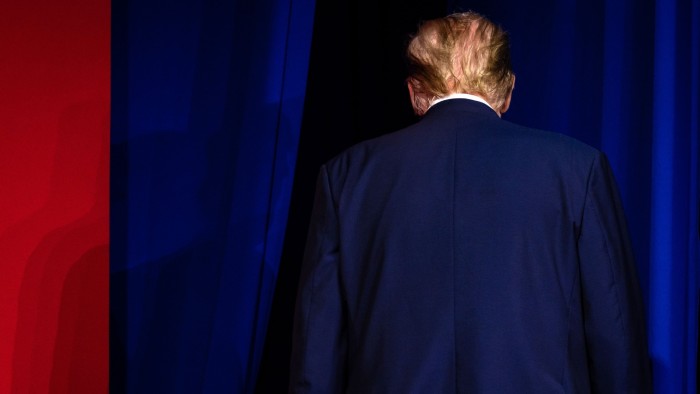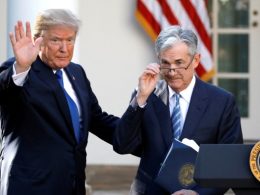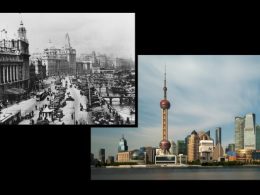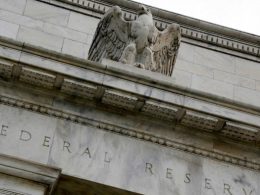Just over a month before he clinched a decisive victory in November’s presidential election, Donald Trump issued a warning to businesses across the globe.
“American workers will no longer be worried about losing [their] jobs to foreign nations; foreign nations will be worried about losing their jobs to America,” he told a raucous crowd of supporters at a campaign rally in Savannah, Georgia, in late September.
“Vote for Trump, and you will see a mass exodus of manufacturing from China to Pennsylvania, from Korea to North Carolina, from Germany to right here in Georgia.”
Americans backed his pitch for sweeping tariffs, mass deportations, sharp tax cuts and widespread deregulation wholeheartedly — handing Trump not only the White House but also granting Republicans control of both chambers of Congress.
Businesses at home and abroad are now bracing for upheaval as they contend with extreme uncertainty about just how aggressive Trump will be in pursuit of his goals: shoring up the US industrial sector and achieving what he once described as a “national economic renaissance”.
Wendy Cutler, vice-president of the Asia Society Policy Institute and former acting deputy US trade representative, predicts the return of Trump is likely to cause paralysis in terms of executive decision making. “My sense is businesses hold off and watch the developments before making serious commitments.”
At the crux of Trump’s proposals are tariffs of up to 20 per cent on all US imports, as well as steep levies on Chinese goods. Weeks after winning the election, he announced the intention to impose 25 per cent tariffs on Canada and Mexico as well as an additional 10 per cent tariff on China. He later threatened 100 per cent tariffs on the Brics countries if they pursued an alternative currency to the US dollar. This group includes Brazil, Russia, India, China and South Africa.
He has also vowed to gut outgoing president Joe Biden’s landmark legislation aimed at burnishing America’s manufacturing chops by providing federal incentives to splinter China’s control of critical supply chains.
Trump’s tariff policies have been paired with plans to significantly scale back on the number of illegal immigrants in the country, while also offering steep tax cuts for corporations and reduced regulatory red tape.
Foreign companies operating in the US must weigh up the impact of these policies, too. Since 2018, foreign direct investment into the US has swelled from about $1tn to $5.4tn as of 2023, according to the latest available data from the Bureau of Economic Analysis. About three quarters of that comes from just eight countries, all of which are US allies.
China accounts for les than 1 per cent, according to the Global Business Alliance, a business association representing US subsidiaries of international companies.
More than 8mn Americans are now directly employed by international companies operating in the US, of which nearly 3mn work in manufacturing. These businesses also account for about 12 per cent of all research and development performed in the US, totalling $80bn as of the end of 2022.
Tony Iannelli — who leads the chamber of commerce in Pennsylvania’s Greater Lehigh Valley, which has emerged as a manufacturing hub for domestic and international businesses — says that, among the companies he speaks to, consternation about tariffs is offset by optimism about other parts of Trump’s agenda, such as the vow to cut red tape.
“The biggest concern is, what will that do to inventory?” he notes. “What will that do to the price of the inventory? And how will that affect sales in the end? Ultimately, the concern has to be, what is the end price of a product, and what does that do to demand?”
The answer to those questions will depend on how exacting Trump proves to be on tariffs or whether he employs them as a negotiating device to extract better terms from trading partners.
Scott Bessent — the incoming Treasury secretary, if confirmed by the Senate — has talked about tariffs as a “maximalist policy”, suggesting the full-throated pledges Trump touted on the campaign trail may be scaled back, once concessions are obtained from trading partners.
Much will also depend on which products are targeted, how quickly the levies are put in place, and the degree to which countries pursue retaliatory measures.
Lael Brainard, Biden’s top economic adviser, recently told the Financial Times that sweeping tariffs and plans to scrap the outgoing administration’s manufacturing tax credits would risk “throw[ing] us back into a period of chaos and price increases”.
Cutler says some companies are already “scrambling to see what they could do to placate the administration”. That would include increasing FDI in the US — something South Korea’s trade minister Cheong In-kyo already hinted was a possibility. “There are ongoing investments already, and there is a possibility that investment could accelerate, followed by an increase in US-bound exports by small and medium-sized parts manufacturers,” he told Reuters recently.
“Global interconnectedness is certainly something that matters to America’s long term viability,” adds Jonathan Samford, executive vice-president of the Global Business Alliance. “Companies who are making decisions to invest here rely on products from around the world. And it’s not just the international companies in the United States, there are US-headquartered firms that are just as global.”
Source link









